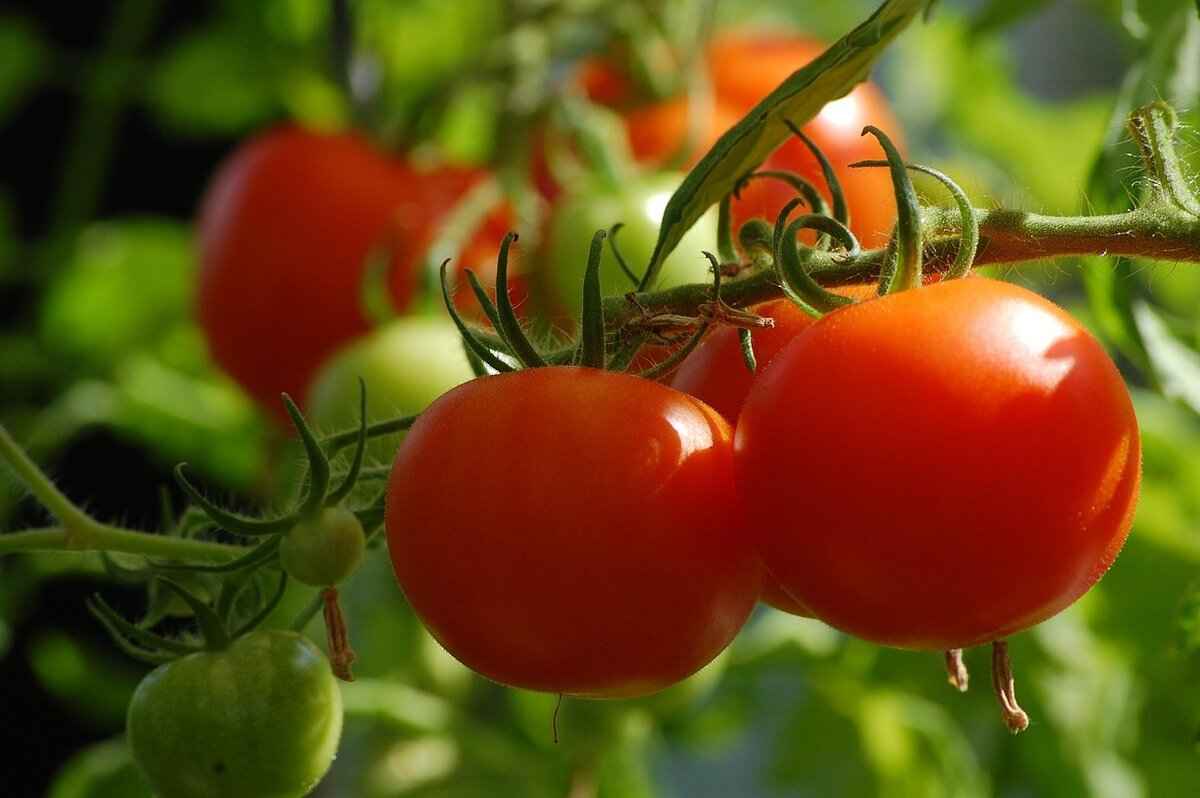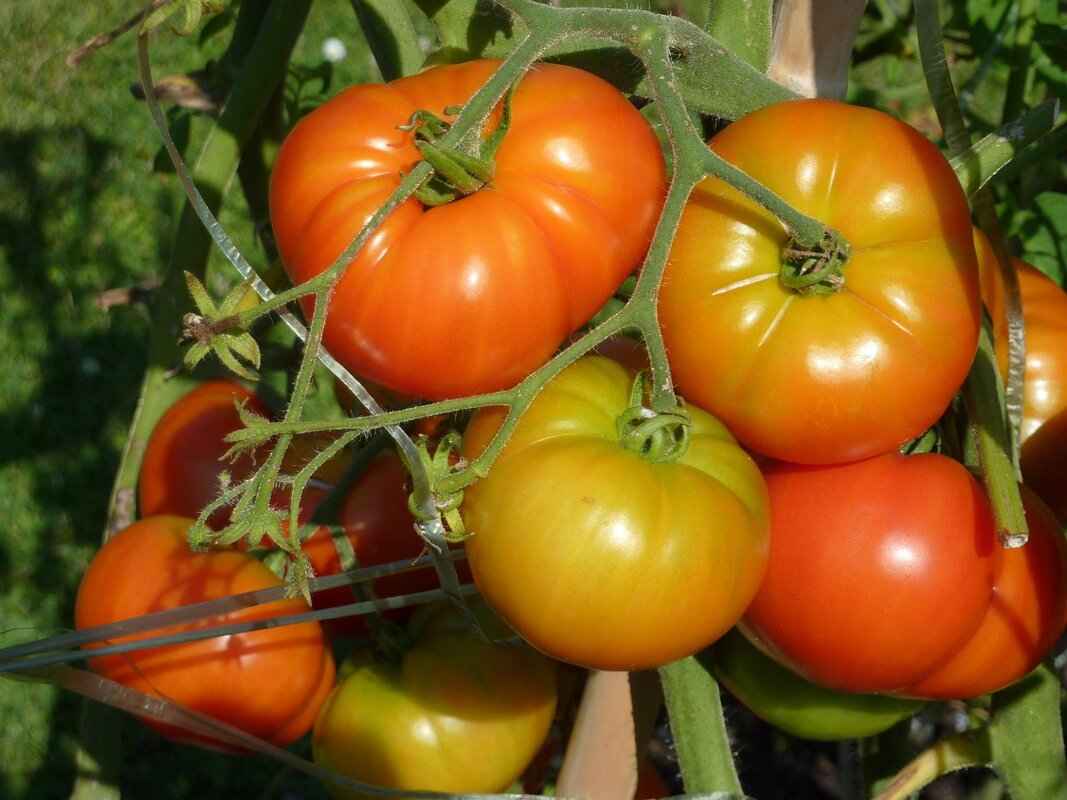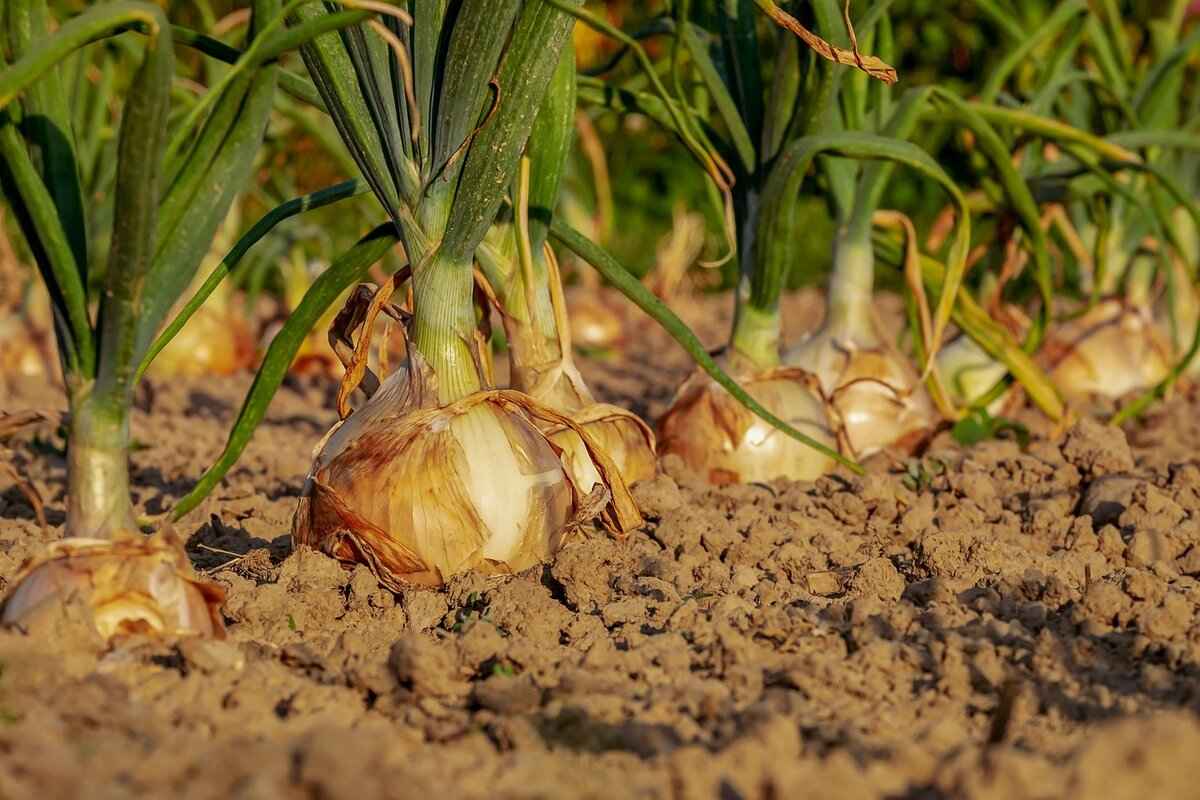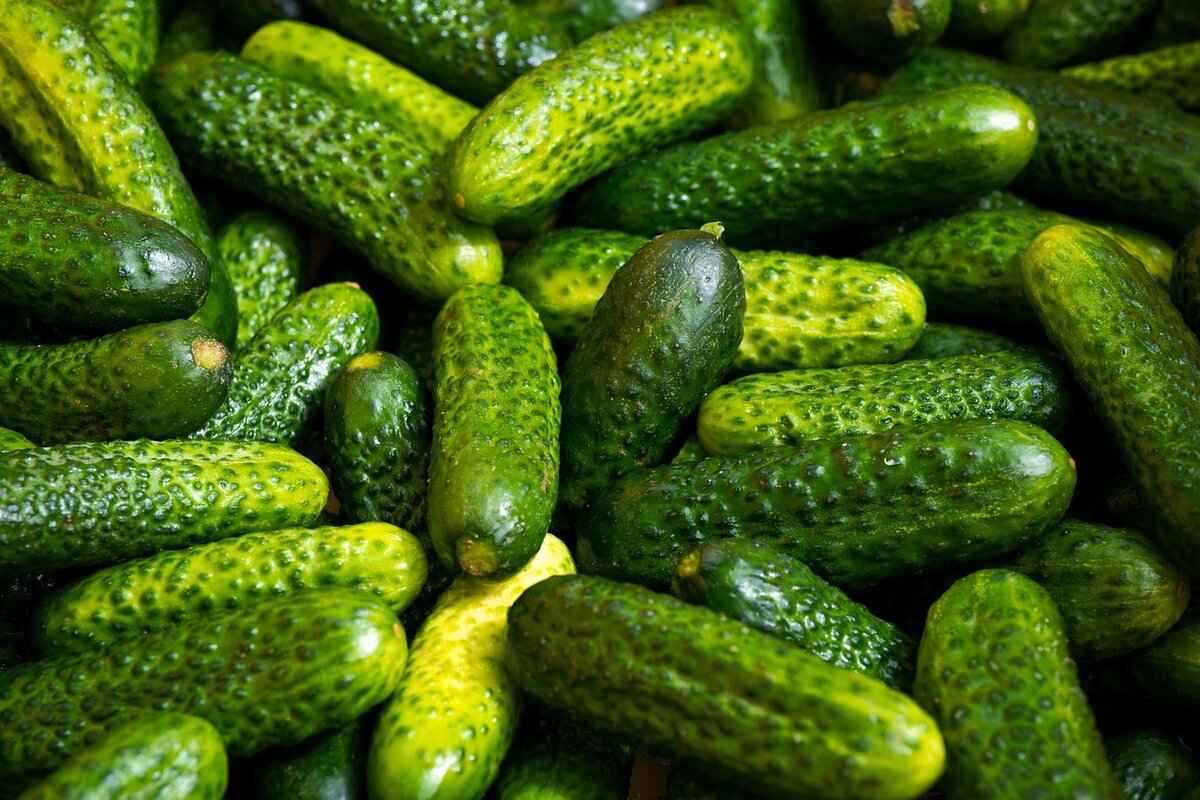This article delves into the multifaceted benefits of pickled vegetables in Asian cuisine, emphasizing their significant role in enhancing gut health, their impressive nutritional profile, and practical ways to incorporate them into daily diets.
What Are Pickled Vegetables and Their Types?
Pickled vegetables are created through the process of preserving vegetables in brine or vinegar, resulting in a delightful array of flavors and textures. Common types of pickled vegetables in Asian cuisine include:
- Kimchi: A staple in Korean cuisine, made from fermented napa cabbage and radishes.
- Tsukemono: Japanese pickles that can include various vegetables, often served as side dishes.
- Pao Cai: A form of pickled vegetable popular in Sichuan cuisine, usually involving cabbage and carrots.
How Do Pickled Vegetables Benefit Gut Health?
The fermentation process inherent in pickling promotes the growth of probiotics, which are essential for maintaining gut health. These beneficial microorganisms contribute to a balanced gut flora, enhancing overall digestive wellness.
What Are Probiotics and Their Role?
Probiotics are live microorganisms that provide health benefits when consumed. They play a crucial role in:
- Restoring the natural balance of gut bacteria.
- Improving digestion and nutrient absorption.
- Reducing inflammation in the gut.
How Do Probiotics Affect Digestion?
Probiotics assist in breaking down food and facilitating the absorption of nutrients. They help in:
- Enhancing the breakdown of complex carbohydrates.
- Producing essential vitamins like B12 and K.
- Improving the gut lining’s integrity, preventing leaky gut syndrome.
Can Probiotics Help with Gut Disorders?
Research indicates that probiotics can alleviate symptoms associated with various gut disorders, such as:
- Irritable Bowel Syndrome (IBS): Regular consumption of pickled vegetables may help manage IBS symptoms.
- Constipation: Probiotics can enhance bowel regularity and improve stool consistency.
What Nutrients Are Found in Pickled Vegetables?
Beyond probiotics, pickled vegetables are a rich source of essential vitamins and minerals. Key nutrients include:
- Vitamin C: Important for immune function and skin health.
- Vitamin K: Crucial for blood clotting and bone health.
- Fiber: Aids in digestion and promotes satiety.
How to Incorporate Pickled Vegetables into Your Diet?
Incorporating pickled vegetables into your meals can be both easy and delicious. Here are some practical tips:
- Add kimchi to rice bowls or tacos for an extra kick.
- Include tsukemono as a refreshing side dish with grilled meats.
- Use pickled vegetables in salads for added flavor and crunch.
What Are Some Popular Asian Pickled Dishes?
Asian cuisine boasts a variety of pickled dishes that are both nutritious and flavorful. Notable examples include:
- Kimchi: A versatile dish that can be served as a side or used in stews.
- Japanese Sunomono: A refreshing cucumber salad with vinegar dressing.
- Chinese Pickled Mustard Greens: Often served with congee or rice.
How Can You Make Your Own Pickled Vegetables?
Making pickled vegetables at home is simple and rewarding. Here’s a basic recipe:
Ingredients:- 2 cups of your choice of vegetables (cucumbers, carrots, etc.)- 1 cup vinegar (rice or apple cider)- 1 cup water- 1/4 cup sugar- 1 tablespoon salt- Optional spices (garlic, chili flakes)Instructions:1. Combine vinegar, water, sugar, and salt in a saucepan. Heat until dissolved.2. Pack vegetables into sterilized jars. Add optional spices.3. Pour the hot brine over the vegetables, ensuring they are fully submerged.4. Seal jars and let them cool before refrigerating. Enjoy in a week!

What Are Pickled Vegetables and Their Types?
Pickled vegetables are a staple in many cuisines around the world, particularly in Asian cuisine. These vegetables are preserved in a solution of brine or vinegar, which not only extends their shelf life but also adds a unique array of flavors and textures. The process of pickling can vary significantly from one culture to another, resulting in a diverse selection of pickled vegetables that cater to different palates.
In essence, pickled vegetables are vegetables that have undergone a preservation process through fermentation or soaking in acidic solutions. This method not only enhances the flavor but also boosts the nutritional value of the vegetables. Below are some of the most popular types of pickled vegetables found in Asian cuisine:
- Kimchi: A traditional Korean dish made from fermented vegetables, primarily napa cabbage and radishes, seasoned with chili pepper, garlic, ginger, and other spices. Kimchi is renowned for its spicy flavor and is often served as a side dish.
- Tsukemono: A Japanese term for pickled vegetables, tsukemono can include a variety of vegetables such as cucumbers, eggplants, and daikon radish. These pickles are typically less spicy and are often served with rice or as part of a bento box.
- Achaar: A type of Indian pickle made from a variety of fruits and vegetables, often mixed with spices and oils. Achaar can be tangy, spicy, or sweet, depending on the ingredients used.
- Nuoc Cham: A Vietnamese dipping sauce that often incorporates pickled vegetables, particularly carrots and daikon. This sauce is a staple in many Vietnamese dishes, adding a tangy and slightly sweet flavor.
- Pickled Ginger: Commonly served with sushi, pickled ginger (or gari) is made from young ginger roots that are marinated in vinegar and sugar. It is known for its refreshing taste and digestive benefits.
Each type of pickled vegetable not only offers a distinct taste but also contributes to the overall health benefits associated with fermented foods. The variety of flavors, from spicy to tangy, allows for versatile use in meals, enhancing both taste and nutrition.
As more people become aware of the health benefits of fermented foods, the popularity of pickled vegetables continues to rise. They can be easily incorporated into salads, sandwiches, and main dishes, providing a burst of flavor and a wealth of nutrients.
In summary, pickled vegetables are a delightful addition to any meal, offering a range of flavors and textures while promoting gut health and overall well-being. Their versatility and nutritional value make them an essential component of Asian cuisine and beyond.

How Do Pickled Vegetables Benefit Gut Health?
In recent years, the popularity of pickled vegetables has soared, particularly in Asian cuisine. These vibrant and flavorful additions not only tantalize the taste buds but also offer significant health benefits, especially for gut health. Understanding how pickled vegetables contribute to digestive wellness is essential for anyone looking to improve their overall health.
The fermentation process involved in pickling is a natural method that enhances the growth of probiotics, which are beneficial bacteria that play a crucial role in maintaining a healthy gut. When vegetables are fermented, they undergo a transformation that increases their nutritional value and introduces these helpful microorganisms into our diets.
- Probiotics and Gut Flora Balance: Probiotics from pickled vegetables help to restore and maintain a balanced gut microbiome. A healthy gut flora is essential for optimal digestion and can prevent issues like bloating, gas, and irregular bowel movements.
- Enhanced Nutrient Absorption: The presence of probiotics aids in breaking down food more efficiently, allowing for better absorption of essential nutrients. This means that the vitamins and minerals present in the pickled vegetables become more accessible to the body.
- Support for Digestive Disorders: Research indicates that regular consumption of probiotics can alleviate symptoms of various digestive disorders, such as Irritable Bowel Syndrome (IBS) and constipation. By incorporating pickled vegetables into your diet, you may find relief from these conditions.
Moreover, the fermentation process not only boosts the probiotic content but also enhances the bioavailability of certain nutrients. For instance, fermented vegetables are often richer in vitamins such as Vitamin K and B vitamins, which are vital for various bodily functions.
Another important aspect of pickled vegetables is their ability to promote digestive health through the production of short-chain fatty acids (SCFAs) during fermentation. SCFAs are known to nourish the cells lining the gut and support overall gut barrier function, reducing inflammation and enhancing gut health.
Incorporating pickled vegetables into your daily diet can be simple and enjoyable. They can be added to salads, sandwiches, or served as a side dish to enhance the flavor of meals while simultaneously providing health benefits. Popular options include kimchi, a spicy Korean staple, and tsukemono, Japanese pickled vegetables that come in various flavors and textures.
In summary, the benefits of pickled vegetables extend far beyond their delicious taste. They are a powerhouse of probiotics and nutrients that support gut health, enhance digestion, and may alleviate digestive disorders. By understanding and incorporating these fermented foods into your diet, you can take a proactive step towards improving your digestive wellness.
What Are Probiotics and Their Role?
Probiotics are live microorganisms that offer health benefits when consumed, particularly in relation to gut health. They play a crucial role in maintaining the balance of gut flora, which is essential for optimal digestive function. This section explores the significance of probiotics derived from pickled vegetables and how they contribute to a healthier digestive system.
When we consume pickled vegetables, we introduce a variety of beneficial bacteria into our digestive tract. These microorganisms, primarily Lactobacillus and Bifidobacterium, are known for their ability to enhance gut flora balance. A healthy gut microbiome is essential for proper digestion, nutrient absorption, and even immune function.
One of the primary benefits of probiotics is their ability to promote digestive wellness. They help break down food more efficiently, which can lead to improved nutrient absorption. This process not only aids in digestion but also supports overall health by ensuring that the body receives the necessary vitamins and minerals from the food we consume.
Moreover, probiotics can help alleviate common digestive issues such as irritable bowel syndrome (IBS) and constipation. Research indicates that individuals who regularly consume probiotics through pickled vegetables may experience fewer symptoms associated with these conditions. The beneficial bacteria work to restore balance in the gut, reducing inflammation and improving bowel regularity.
Another vital aspect of probiotics is their role in enhancing the gut barrier function. A healthy gut lining prevents harmful substances from entering the bloodstream, which is crucial for maintaining overall health. Probiotics from pickled vegetables can strengthen this barrier, reducing the risk of gastrointestinal disorders.
In addition to their digestive benefits, probiotics also play a role in mental health. The gut-brain connection is a fascinating area of research, suggesting that a balanced gut microbiome can influence mood and cognitive function. By consuming probiotics, individuals may experience a positive impact on their mental well-being.
Incorporating pickled vegetables into your diet is an excellent way to boost your probiotic intake. Foods like kimchi, tsukemono, and fermented pickles not only add flavor to meals but also provide a rich source of beneficial bacteria. Including these foods in your daily diet can enhance digestive health and overall well-being.
In summary, probiotics derived from pickled vegetables play a significant role in improving gut flora balance and digestive health. Their ability to promote efficient digestion, alleviate gut disorders, and support mental health makes them a valuable addition to a balanced diet. By embracing the culinary traditions of Asian cuisine and incorporating these nutrient-rich foods, individuals can harness the full potential of probiotics for a healthier lifestyle.
How Do Probiotics Affect Digestion?
Probiotics, often referred to as “good bacteria,” play a crucial role in maintaining a healthy digestive system. These live microorganisms, when consumed in adequate amounts, can significantly enhance the body’s ability to break down food and absorb nutrients efficiently. This section delves into the intricate mechanisms through which probiotics derived from pickled vegetables contribute to improved digestion and nutrient absorption.
When we consume pickled vegetables, we introduce a rich source of probiotics into our gut. These beneficial bacteria work synergistically with our body to promote optimal digestive health. One of the primary ways probiotics enhance digestion is by fermenting dietary fibers. This process breaks down complex carbohydrates that our digestive enzymes might struggle with, converting them into simpler sugars that are easier to absorb.
- Increased Nutrient Bioavailability: Probiotics help in the breakdown of food, leading to increased bioavailability of essential nutrients such as vitamins and minerals. For instance, the fermentation process can enhance the absorption of nutrients like calcium and magnesium, making them more accessible to the body.
- Balancing Gut Flora: A healthy gut is home to a diverse range of bacteria. Probiotics from pickled vegetables help maintain this balance by inhibiting the growth of harmful bacteria that can disrupt digestion and lead to gastrointestinal issues.
- Enhancing Gut Motility: Probiotics can also improve gut motility, which facilitates the smooth movement of food through the digestive tract. This can prevent issues such as constipation and promote regular bowel movements.
Moreover, the presence of probiotics can stimulate the production of digestive enzymes. These enzymes are vital for breaking down fats, proteins, and carbohydrates into their constituent parts, allowing for better nutrient absorption. For example, lactobacilli, a common type of probiotic found in fermented foods, can produce lactase, an enzyme that aids in the digestion of lactose, benefiting those who are lactose intolerant.
Additionally, probiotics can enhance the gut’s immune response. A healthy gut microbiome supports the gut-associated lymphoid tissue (GALT), which plays a pivotal role in the immune system. By improving gut health, probiotics help the body fend off infections and reduce inflammation, further promoting a healthy digestive system.
It’s also worth noting that the fermentation process of pickled vegetables not only produces probiotics but also generates short-chain fatty acids (SCFAs). SCFAs are beneficial compounds that provide energy to colon cells and have anti-inflammatory properties, contributing to overall gut health.
In summary, the probiotics found in pickled vegetables significantly enhance digestion and nutrient absorption through various mechanisms. By breaking down food, increasing nutrient bioavailability, balancing gut flora, and stimulating digestive enzyme production, these beneficial bacteria play an essential role in maintaining a healthy digestive system. Incorporating pickled vegetables into your diet can be a delicious way to support your gut health and overall well-being.
Can Probiotics Help with Gut Disorders?
Probiotics have gained significant attention in recent years for their potential to improve gut health. This question is at the forefront of many health discussions. Research indicates that probiotics, which are live microorganisms, can play a crucial role in alleviating symptoms associated with various gut disorders, including Irritable Bowel Syndrome (IBS) and constipation.
Probiotics are often referred to as “good” bacteria. They help maintain a healthy balance of gut flora, which is essential for optimal digestive function. Studies have shown that regular consumption of probiotics can lead to improvements in digestive health, including a reduction in bloating, gas, and discomfort. By enhancing the gut microbiome, probiotics can also support the immune system and contribute to overall well-being.
For individuals suffering from IBS, probiotics can be particularly beneficial. They work by:
- Restoring balance to the gut microbiota, which may be disrupted in those with IBS.
- Reducing inflammation in the gut lining, which can alleviate symptoms.
- Improving bowel regularity, helping to manage both diarrhea and constipation.
Similarly, for those experiencing constipation, probiotics can enhance the frequency of bowel movements by:
- Increasing the production of short-chain fatty acids, which can stimulate intestinal contractions.
- Improving the overall function of the gastrointestinal tract.
One of the most accessible ways to incorporate probiotics into your diet is through the consumption of pickled vegetables. These fermented foods are rich in live cultures that can bolster digestive health. Commonly found in Asian cuisine, pickled vegetables such as kimchi and sauerkraut not only provide flavor but also deliver a potent dose of probiotics.
To reap the benefits of probiotics, consider adding pickled vegetables to your meals. Here are some practical tips:
- Use pickled vegetables as a side dish to complement main courses.
- Add them to salads for an extra crunch and flavor.
- Incorporate pickled vegetables into sandwiches or wraps.
- Experiment with homemade pickling to create personalized flavors.
In summary, the evidence supporting the use of probiotics for managing gut disorders is compelling. Regular consumption of probiotic-rich foods, particularly pickled vegetables, can significantly enhance gut health and alleviate symptoms associated with IBS and constipation. By understanding the role of probiotics and incorporating them into your diet, you can take proactive steps towards better digestive health.
What Nutrients Are Found in Pickled Vegetables?
Pickled vegetables are not only a flavorful addition to meals but also a powerhouse of essential nutrients. As we delve into the nutritional profile of these vibrant foods, it becomes clear that they offer a variety of vitamins and minerals that contribute to overall health. Below, we explore the key nutrients found in common pickled vegetables and their associated health benefits.
- Vitamins: Pickled vegetables are often rich in vitamins A, C, and K. Vitamin A supports vision and immune function, while vitamin C is crucial for skin health and antioxidant protection. Vitamin K plays a significant role in blood clotting and bone health.
- Minerals: These vegetables can provide essential minerals such as potassium, calcium, and magnesium. Potassium helps regulate blood pressure, calcium is vital for strong bones, and magnesium supports muscle and nerve function.
- Fiber: Pickled vegetables are a good source of dietary fiber, which aids in digestion and helps maintain a healthy gut. Fiber can also contribute to satiety, making it easier to manage weight.
- Antioxidants: Many pickled vegetables contain antioxidants that help combat oxidative stress in the body. These compounds can reduce inflammation and lower the risk of chronic diseases.
The nutrients present in pickled vegetables offer a range of health benefits:
- Boosted Immunity: The vitamins and antioxidants found in pickled vegetables can enhance the immune system, helping the body fend off illnesses.
- Improved Digestive Health: The fiber content, combined with the probiotics from fermentation, promotes a healthy gut microbiome, which is essential for good digestion.
- Heart Health: Nutrients like potassium and magnesium support cardiovascular health by helping to regulate blood pressure and cholesterol levels.
- Bone Strength: Calcium and vitamin K found in pickled vegetables contribute to stronger bones and may reduce the risk of osteoporosis.
| Vegetable | Key Nutrients | Health Benefits |
|---|---|---|
| Kimchi | Vitamins A, B, C, K, probiotics | Supports gut health, boosts immunity |
| Pickled Cucumbers | Vitamin K, potassium, fiber | Promotes bone health, aids digestion |
| Tsukemono (Japanese Pickles) | Various vitamins, antioxidants | Reduces inflammation, enhances nutrient absorption |
| Pickled Radishes | Vitamin C, fiber | Boosts immunity, improves digestion |
Incorporating pickled vegetables into your diet not only adds flavor but also enhances your nutritional intake. Whether enjoyed as a side dish, in salads, or as toppings, these vibrant additions can significantly contribute to a balanced diet.

How to Incorporate Pickled Vegetables into Your Diet?
Incorporating pickled vegetables into your meals is not only easy but also a delightful way to enhance your diet with flavor and nutrition. These vibrant, tangy additions can transform ordinary dishes into culinary adventures while providing health benefits, particularly for your gut. Here are some practical tips to seamlessly integrate pickled vegetables into your daily meals.
- Salads: Toss pickled vegetables into your salads for an extra crunch and zing. They pair well with leafy greens, nuts, and seeds, enhancing both flavor and texture.
- Sandwiches and Wraps: Add a layer of pickled vegetables to your sandwiches or wraps. They can elevate a simple turkey sandwich or a veggie wrap, providing a burst of flavor that complements the other ingredients.
- Rice and Grain Bowls: Incorporate pickled vegetables into rice or grain bowls. Their acidity balances the richness of proteins like grilled chicken or tofu, making for a satisfying meal.
- Charcuterie Boards: Include an assortment of pickled vegetables on your charcuterie boards. They add color and variety, making your spread more appealing and inviting.
- Soups and Stews: Stir in pickled vegetables towards the end of cooking soups or stews. This will infuse the dish with a tangy flavor without losing the crunch.
There is a wide array of pickled vegetables to choose from, each offering unique flavors. For instance, kimchi is a spicy Korean pickled vegetable that can add heat to any dish, while tsukemono are Japanese pickles that can range from sweet to savory. Experimenting with different types can keep your meals exciting and varied.
Creating your own pickled vegetables at home is a rewarding experience. You can customize the flavors to suit your taste preferences. A simple recipe involves:
1. Choose your vegetables (cucumbers, carrots, radishes, etc.).2. Prepare a brine using equal parts vinegar and water, adding salt and sugar to taste.3. Bring the brine to a boil, then pour it over the vegetables in a jar.4. Seal and refrigerate for at least 24 hours before enjoying.
To keep your pickled vegetables fresh, store them in airtight containers in the refrigerator. They can last for several weeks, allowing you to enjoy their benefits over time. Always use clean utensils when serving to prevent contamination.
Incorporating pickled vegetables into your diet is a simple yet effective way to boost flavor and nutrition. By experimenting with different dishes and types of pickles, you can discover new favorites that enhance your meals while supporting gut health. So, why not start today? Your taste buds and digestive system will thank you!
What Are Some Popular Asian Pickled Dishes?
Asian cuisine is renowned for its rich flavors and diverse ingredients, and among its many offerings, pickled dishes hold a special place. These dishes not only tantalize the taste buds but also provide numerous health benefits, particularly for gut health. In this section, we will explore some of the most popular Asian pickled dishes, including kimchi, tsukemono, and others, along with suggestions on how to enjoy them.
Kimchi is a traditional Korean dish made from fermented vegetables, primarily napa cabbage and Korean radishes, seasoned with various spices, including chili powder, garlic, ginger, and fish sauce. The fermentation process not only enhances its flavor but also boosts its probiotic content, making it a fantastic addition to a healthy diet. Kimchi can be enjoyed as a side dish, added to stews, or incorporated into fried rice for an extra kick.
Tsukemono refers to a variety of Japanese pickles, which can be made from vegetables like cucumbers, eggplants, and daikon radishes. These pickles are typically preserved in a mixture of salt, rice bran, or vinegar, resulting in a crisp texture and tangy flavor. Tsukemono is often served as a side dish or garnish, complementing rice and other main dishes. They can also be enjoyed in bento boxes, adding a colorful and flavorful touch.
- Achaar: A spicy Indian pickle made from various fruits and vegetables, often preserved with mustard oil and spices.
- Pickled Garlic: Common in many Asian countries, pickled garlic is known for its sweet and tangy flavor, often used in salads and as a condiment.
- Panch Phoron Pickles: A Bengali specialty, these pickles are made using a blend of five spices and various vegetables, celebrated for their aromatic profile.
Incorporating pickled dishes into your meals can be both simple and rewarding. Here are a few suggestions:
- Add kimchi to your ramen or stir-fry for a spicy twist.
- Include tsukemono in your sushi rolls for added crunch and flavor.
- Use achaar as a condiment to enhance the taste of curries and rice dishes.
With their unique flavors and health benefits, pickled vegetables are an essential component of Asian cuisine. Whether you enjoy them as a side dish or incorporate them into main meals, they offer a delightful culinary experience that can also support your gut health.
How Can You Make Your Own Pickled Vegetables?
Creating your own pickled vegetables at home is not only simple but also a rewarding experience. With just a few ingredients and a little bit of time, you can craft delicious pickled vegetables that suit your taste preferences.
To get started, gather the following ingredients:
- Fresh vegetables (cucumbers, carrots, radishes, etc.)
- Vinegar (white, apple cider, or rice vinegar)
- Water
- Sugar (optional, for sweetness)
- Salt (preferably kosher or sea salt)
- Spices (dill, garlic, peppercorns, etc.)
Follow these steps to create your own pickled vegetables:
- Prepare the Vegetables: Wash and cut the vegetables into desired shapes (slices, sticks, or whole).
- Make the Brine: In a saucepan, combine equal parts vinegar and water. Add sugar and salt to taste, along with your choice of spices. Bring the mixture to a boil, stirring until the sugar and salt dissolve.
- Pack the Jars: Place the prepared vegetables in clean, sterilized jars. Make sure to leave some space at the top.
- Add the Brine: Pour the hot brine over the vegetables, ensuring they are fully submerged. You can use a weight or a clean piece of cloth to keep them down.
- Seal and Cool: Close the jars with lids and let them cool to room temperature. Once cooled, refrigerate the jars.
Typically, pickled vegetables can last for several weeks in the refrigerator. However, the flavor improves over time, so it’s best to wait at least a few days before sampling them.
Feel free to experiment with different ingredients and flavors:
- Add Herbs: Fresh herbs like dill or thyme can enhance the flavor.
- Spice It Up: For a kick, consider adding chili flakes or sliced jalapeños.
- Sweet Variations: Adjust the sugar level for sweeter pickles, or add fruits like pineapple or mango for a unique twist.
Homemade pickled vegetables are not just tasty; they also offer numerous health benefits. They are rich in probiotics, which can enhance gut health and boost the immune system. Additionally, they provide essential vitamins and minerals, making them a nutritious addition to your diet.
In summary, making your own pickled vegetables is a straightforward process that allows you to enjoy customized flavors while reaping health benefits. With just a few ingredients and some creativity, you can transform ordinary vegetables into delightful pickles that elevate your meals.
Frequently Asked Questions
- What are pickled vegetables?
Pickled vegetables are fresh vegetables that have been preserved in a brine or vinegar solution. They come in a variety of flavors and textures, making them a delightful addition to many dishes!
- How do pickled vegetables improve gut health?
The fermentation process during pickling boosts the growth of probiotics—those friendly bacteria that help keep your gut happy and healthy. Regular consumption can lead to better digestion and overall gut wellness.
- Can I make my own pickled vegetables at home?
Absolutely! Making your own pickled vegetables is not only simple but also a fun way to experiment with flavors. Just grab your favorite veggies, some vinegar, and spices, and you’re good to go!
- What nutrients can I find in pickled vegetables?
Besides being rich in probiotics, pickled vegetables are packed with vitamins and minerals. They often contain vitamin C, vitamin K, and various antioxidants that contribute to your overall health.
- Are there any popular Asian pickled dishes I should try?
Definitely! Some popular options include kimchi, which is spicy and fermented, and tsukemono, a Japanese pickled vegetable dish. Both are delicious and can elevate your meals!














